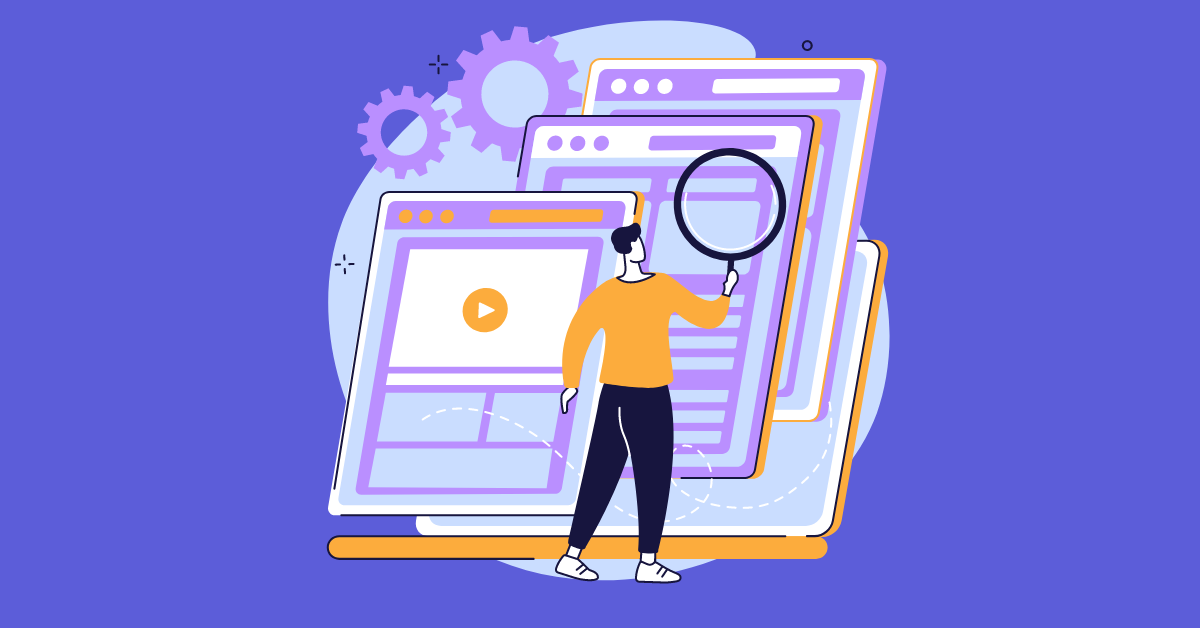What is Total Quality Management?
A Philosophy of Total Quality Management (TQM) starts with the belief that quality is a personal responsibility and the purpose of TQM is to put quality first. TQM creates a continuous improvement process to ensure customers receive products and services that meet their needs, exceed their expectations, and continue to delight.
Total Quality Management is used to improve and deliver quality products and services. It aims to prevent costly mistakes and product recalls. The ultimate goal of TQM is to create a culture of continuous improvement, in which employees are encouraged to improve whatever processes they are involved in continually.
What is covered in this blog post:
- What is Total Quality Management?
- The principles of Total Quality Management
- The building blocks of Total Quality Management
- Why should you use monday.com for your TQM operations?
The principles of Total Quality Management
The principles of customer focus and continuous improvement are the foundation of Total Quality Management. There are eight principles that contribute to this:
Customer Focus
Determining customer needs and delivering value to them is at the core of every decision you make. You should focus on delivering significant improvements that meet their expectations.
Total employee involvement
Ideas can come from anywhere, so be sure to include all employees in your ideation process. By engaging team members whose ideas may differ from mainstream thinking and who are willing to speak their minds, you’ll receive valuable feedback that will help you innovate more effectively.
Process-focused
It’s important to use processes because they reduce the risk of human error and help teams deliver products faster.
A strategic and systematic approach
Instead of addressing one specific issue at a time, TQM encourages you to not only address all issues but also explore why they exist in the first place.
Ongoing improvement
Implementing small improvements can build a foundation for future growth. Small changes like improving customer satisfaction or core processes can take time to pay off, but the incremental success of implementing these measures may inspire you and your team to transform your company into something even better.
Integrated systems
Create an infrastructure that encourages company-wide collaboration with a strong, shared corporate mission, values, and culture. A well-defined company culture allows employees to feel motivated and energized by the company’s goals and vision. A collaborative infrastructure supports employee engagement and allows employees to work together more seamlessly.
Decision-making based on facts
Set KPIs and invest in tracking and analytics to monitor them. This means taking a hard look at the numbers and being honest about whether your ideas are working. Analyze what’s happening, test new practices, and use the data to make better decisions over time.
Clear communication
To ensure that everyone in your company is on the same page, you need ,to standardize your vision, processes and plans. A third party platform for communication can make things easier for everyone.
The building blocks of Total Quality Management
The four main building blocks of Total Quality Management (TQM) are culture, analytics, a systemic approach, and long-term investment. TQM focuses on long-term quality improvements as opposed to short-term gains or quick fixes. The goal is to build a culture where quality is considered in all parts of the organization.
In order to implement the building blocks of total quality management, the following needs to be mastered:
A culture of improvement
Sustaining continuous improvement, every employee must pursue it — and your organizational culture must support this initiative at all levels of the company. If people don’t buy in, then any quality improvements will be temporary.
Analyzing the data
With all the different aspects of business, it’s often difficult to tell what helps you improve and which practices are simply wasting your time. This is where analytics come in. Implementing an analytics program allows you to see how different strategies are working and if they need tweaking.
Long-term investment when you are hiring
HR professionals need to consider the long-term implications of their hiring and training investments. If you overhaul your hiring and training process, you should see returns in terms of performance, morale, and efficiency, as well as improved employee retention.
Why should you use monday.com for your TQM operations?
Successfully implementing TQM is all about giving employees a robust digital workspace that connects processes, tasks, and conversations. monday.com gives teams the ability to build custom digital platforms with an extensive list of integrations, customizable templates, and a REST API, so they can manage every aspect of their company from one place.
monday.com helps teams with their process by providing templates and a platform where you can document your workflow, standardize it, and put it in the app where everyone is working. This makes onboarding new employees easier and less time-consuming. monday.com offers a wide range of workflow templates aimed at different companies, such as “Design Teams” or “SEO”.
With access and user permission controls, you can ensure that every employee only sees what they need to. Add sub-items or comments in a checklist to each item, and easily add comments without struggling through endless email threads.
You will be able to track and measure progress
With powerful visualization tools like Gantt charts and Kanban boards, you’ll never be lost again. From the moment that your first boards are up and running, you have access to real-time data and insights on what people love and what they hate about your product — so you can adjust the course accordingly.
For example, you can visualize the progress of multiple processes in a single dashboard. All this data is only up-to-date when all your team members actively use the platform.
Take advantage of a pool of integrations
monday.com is a centralized hub for all your company’s apps. With monday.com, each team member has a unified view of their projects and tasks, real-time reports on how they are tracking towards their goals, and access to all your data in one place.
The monday.com data integration platform allows you to sync all your data automatically, daily, as soon as it changes. Not only does this free up valuable employee time and reduce the risk of bad data due to typos, but it also improves customer service by providing more accurate information during customer interactions.
Real-time issue monitoring
Bugs are the number one cause of bad customer experiences. With digital products, bugs are the equivalent of a production error. Striving to minimize them is the bare minimum of TQM. monday.com is committed to zero bugs in all of its products and guaranteeing a high-quality experience for all of its customers.
Conclusion
Quality is the single most important product of a company. If you want to offer quality products and services that can be trusted, you need to first focus on building your processes with quality in mind. This doesn’t just mean having good control over the final result. It means understanding your whole working environment, minimizing excess costs and risks, and making sure everyone on the team knows how their work contributes to achieving overall goals.
Recommended Reads:



